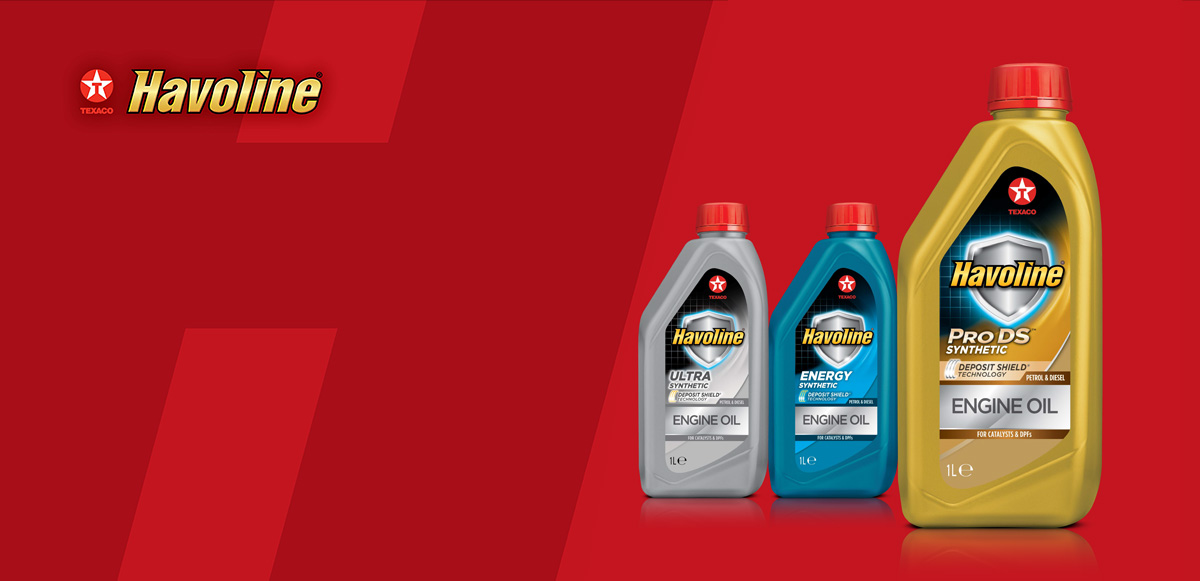Havoline Oils – Part Four
Approvals, standards and regulations


Texaco Product & Technology Support Chemist, Rudi Sanders, is back to answer more important questions. This time out, Rudi takes a look at the approvals, standards and regulations that have affected the lubricants industry.
Rudi Sanders (RS): The list of changes is long, and each change has been and will continue to be triggered by the five main market drivers pushing passenger car development and associated manufacturer specifications in Europe. Many of these changes are closely related. Four of them are triggered by current and future legislation: emissions, fuel economy or carbon dioxide emissions, the use of alternative fuels and powertrains, and more recently, sustainability. The fifth, and by no means the least important driver, is durability. Durability is required by both the car manufacturers and the end-user customers themselves. These drivers have a clear influence on the engine oils and lubrication systems of passenger cars.
When we look at the last decade, we have seen a transition to lower viscosity engine oils in order to support fuel efficiency. We have also seen low SAPS formulations introduced on a greater scale to make engine oils and emissions systems compatible, as well as the move to higher quality base oils and additives to improve oxidation stability, and cope with the increased use of biofuels.
Over the last decade, we have also had to deal with less alignment between different manufacturer specifications, leading to more segmentation and complexity for customers.
Q: Texaco Lubricants works closely with many manufacturers to obtain approvals for its Texaco Havoline range of oils. What is the advantage of a manufacturer's approval compared to a simple certification?
RS: At Texaco Lubricants, we conduct all the necessary tests and have the documentation to support our official OEM approvals for our Havoline engine oils. Approval processes can often take several months, so if our products meet all the requirements of the OEM specification but no approval has been obtained just yet, we will only claim ‘performance’ on our Product Data Sheets. An official OEM approval carries much more weight than a ‘performance’ claim, even if all the relevant tests have been successfully run.
Q: What are the specific standards required for a passenger vehicle lubricant in Europe?
RS: Europe is an OEM driven market, and the OEMs are focused on their own specifications to ensure that the engine oils used are optimised for their engines. OEMs will often refer to ACEA standards as a minimum performance level or as a backup. If you can't find an oil with the appropriate OEM specification, you can use an oil of a specific ACEA category to help sustain the engine until your next oil drain, which should be as soon as possible.
For older vehicles, it is helpful to refer to ACEA oil sequences because when OEM specifications are obsolete, the question is what can be used instead, especially if vehicles are out of warranty and the OEMs are not as concerned about which oils are used. In this case, ACEA oil sequences are a safeguard to ensure that adequate oils are used in older vehicles.
RS: When used properly, petroleum-based lubricants can have a positive impact on fuel economy and can help to reduce the carbon intensity of the machinery in which they are employed. However, using improper products or disregarding the local legislation regarding the disposal of the used products can have a negative impact on the environment. The base oil and additives employed in lubricants can prove toxic to plants, aquatic animals, human beings, and other living beings if not used or disposed of properly.
In many countries in Europe, the collection of used lubricants is dealt with by organisations that are established within a heavily regulated legal framework. This helps prevent the disposal of used oil into the environment.
RS: Coke and varnish-like deposits formed in the engine oil during operation can restrict the free movement of the piston rings, allowing a portion of the combustion gases and unburned fuel to pass into the crankcase. This leads to heavy contamination of the oil, which impacts engine emissions and can even cause piston seizure if the engine operates at higher loads. Heavy sludge can plug oil filters, leading to oil starvation and excessive wear, especially at cold temperature start-ups.
The inorganic acids that enter the engine oil in the crankcase during the combustion process may cause engine part corrosion. The presence of diesel and gasoline in the engine oil lowers its viscosity, which can cause increased wear, while the subsequent fall in the additive treat level provides less protection.
The presence of biodiesel in engine oil leads to an increased level of water, causing corrosion to the engine parts, as well as interaction with the additives and increased lead corrosion.
RS: Yes, automotive engine oils have an expiry date. Engine oils are complex mixtures of base fluids and additives. Over time and depending on the storage conditions, some additives present in an engine oil can start to fall out or separate from the engine oil. In some cases, these additives interact with each other, making the engine oil less effective. Our engine oils have a typical shelf life of a minimum of five years.
RS: The European Waste Catalogue (EWC) specifies the codification of a lubricant. This six-figure code is mentioned in section 13 of the Safety Data Sheet.































